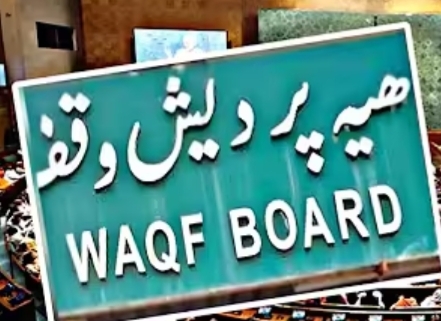NEW DELHI: The Supreme Court on Thursday agreed to hear an application seeking an extension of the six-month deadline for registering all Waqf properties, including Waqf-by-user lands, on the Union Ministry of Minority Affairs’ UMEED portal — the Unified Waqf Management, Empowerment, Efficiency and Development platform launched in June 2025 to streamline and monitor Waqf assets nationwide.
A Bench led by Chief Justice B.R. Gavai said the matter would be listed for hearing after advocate Nizam Pasha, representing AIMIM chief and Lok Sabha MP Asaduddin Owaisi, urged the Court to extend the registration period. He pointed out that most of the allotted six months had already elapsed owing to the pendency of the Court’s earlier interim order on the Waqf (Amendment) Act, 2025.
“Let it be listed; listing does not mean granting,” the CJI observed.
Pasha explained that while the amended law allows six months for completing the registration process, five of those months were consumed during judicial proceedings, leaving just one month for compliance. The plea argues that the enormous scale of the registration exercise — covering thousands of Waqf properties across India — makes it impossible to complete within the remaining time frame.
The application arises in the context of the Court’s September 15 interim order, which declined to stay the Waqf (Amendment) Act, 2025, in its entirety but suspended several key provisions pending a final ruling on its constitutional validity.
The Bench of CJI Gavai and Justice Augustine George Masih had stayed the provision mandating that only individuals “practising Islam for at least five years” could create a Waqf, describing it as prima facie arbitrary in the absence of any defined verification mechanism.
The Court also froze provisions that authorised a revenue officer above the rank of Collector to decide whether disputed land was government property or Waqf property, holding such powers contrary to the principle of separation of powers. It clarified that disputes over ownership must continue to be adjudicated by Waqf Tribunals under Section 83 of the Act and directed that no Waqf property be taken over or third-party interests created until all proceedings reach finality.
However, the Bench declined to interfere with provisions permitting limited representation of non-Muslims in the Central Waqf Council and State Waqf Boards, while directing that “as far as possible” the Chief Executive Officer of each Board should be from the Muslim community. The Court also observed that registration of Waqf properties had been an established practice under successive Waqf legislations since 1923 and could not be deemed arbitrary.
The amended law faces multiple challenges from petitioners including Asaduddin Owaisi, Congress MP Mohammad Jawed, Maulana Arshad Madani, the All India Muslim Personal Law Board (AIMPLB), and the Social Democratic Party of India (SDPI), who allege that it constitutes undue state interference in Muslim religious matters. In contrast, six BJP-ruled states — Haryana, Maharashtra, Madhya Pradesh, Rajasthan, Chhattisgarh, and Assam — have supported the amendment, arguing that it will help curb widespread encroachments and fraudulent land claims under the guise of Waqf.






